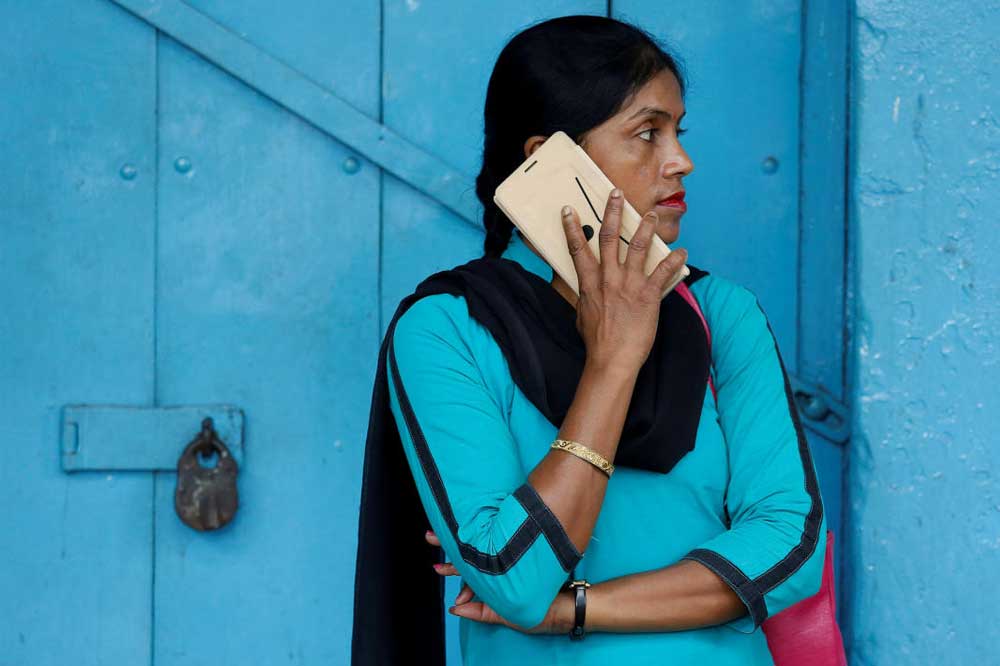
Image via Reuters
A study by researchers from McGill University, University of Oxford, and Bocconi University has highlighted how giving women access to mobile phones is transforming their lives. Having a mobile phone at hand is empowering women as technology is providing them with information they otherwise wouldn’t have. And the researchers at the leading Canadian, English and Italian universities believe smartphones could be a powerful tool to support sustainable development goals in the developing world.
The study published in the "Proceedings of the National Academy of Sciences" covers 209 countries between 1993 and 2017, and shows that using mobile phones is associated with several indicators linked to global social development, such as good health, gender equality and poverty reduction. Additionally, the exploration, called “Leveraging Mobile Phones to Attain Sustainable Development" shows the link between mobile phone access and female empowerment is stronger in less- and least-developed countries.
A Focus on Sub-Saharan Africa
In an effort to better understand how mobile phones embolden women, the authors also conducted an individual level analysis on 100,000 women from Angola, Burundi, Ethiopia, Malawi, Tanzania, Uganda and Zimbabwe between 2015 and 2017. The use of mobile phones is fast spreading in these sub-Saharan countries, where infant and maternal mortality rates remain high and there’s a slow fertility decline.
Results indicate that, other things being equal, women who possess a mobile phone have a one percent higher probability of being involved in decision-making processes about contraception, with respect to women who do not own a phone. They also have a two percent higher chance of using modern contraceptive methods and a three percent higher prospect of knowing where to get tested for HIV. These effects are substantial, as they are comparable to, if not bigger than, the effects of living in an urban area compared to living in a rural one. Similar effects are estimated on higher overall decision-making powers within the household.
The researchers believe improved knowledge and enhanced decision-making powers are the likely pathways through which the macro-level results emerge. The analysis of individual data also confirms that the effects are stronger in poorer and more isolated areas.
Digital Gulfs in the Developing World
Even with the proliferation of mobile networks, the researchers recognise that digital divides by gender and socio-economic levels persist in the developing world. Women are less likely to own mobile phones on their own, use them less often when they have access and have poorer information and communications technology skills compared to men. All this generates second-level (skill-related) digital rifts on top of first-level (access-related) ones.
“Our results suggest that deploying mobile phone technology might serve to complement the role of other development processes such as educational expansion and economic growth rather than a replacement for it,” Luca Maria Pesando, a professor in the Department of Sociology and Centre on Population Dynamics at McGill University, said.

















